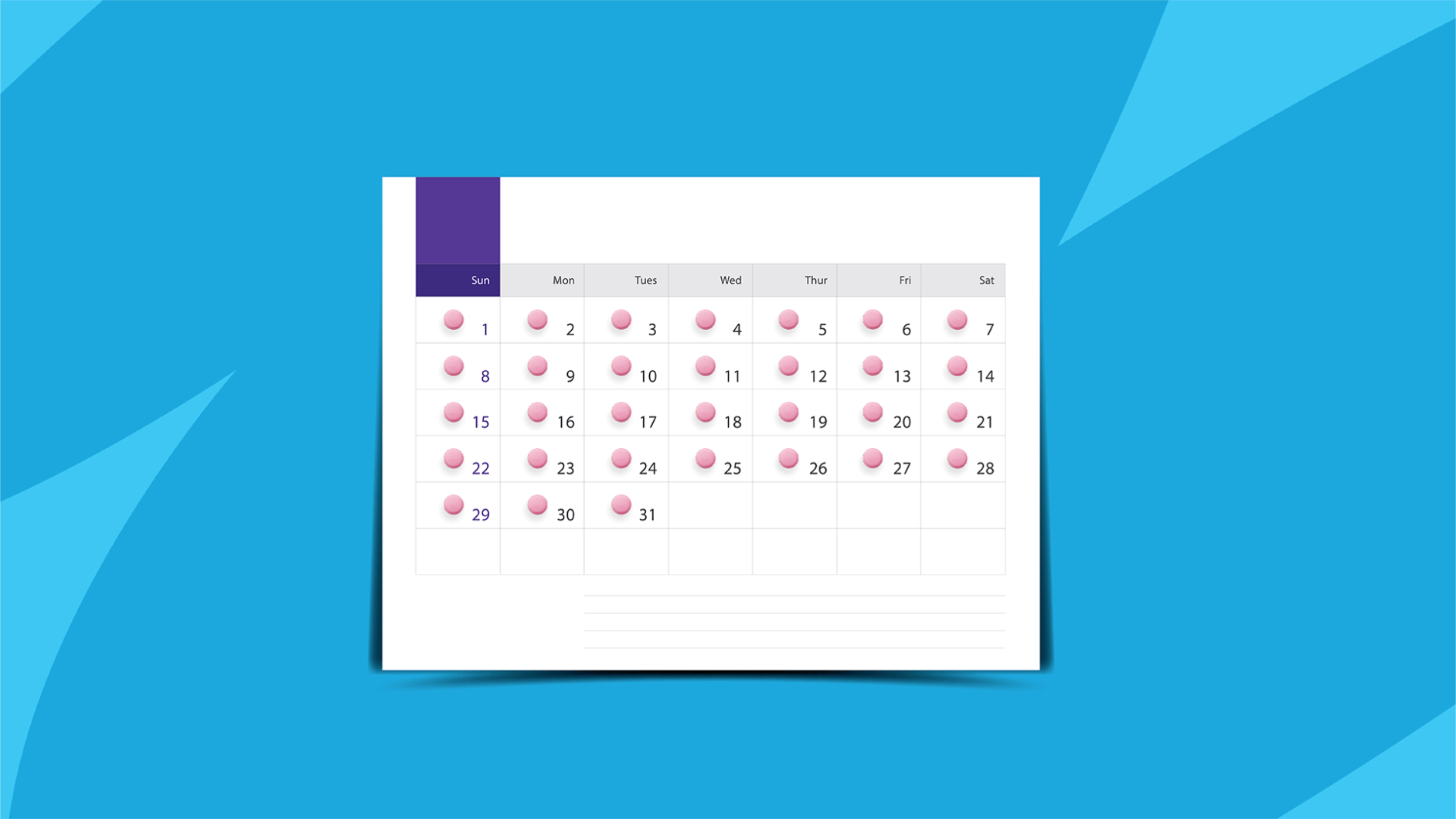What are antihistamines? | Can I take antihistamines every day? | Best antihistamines for daily use | Side effects | Discontinuing antihistamines | Other allergy treatments
If springtime flowers bring sniffling, sneezing, and itching, you’re not alone. Allergies are one of the most common chronic conditions worldwide, affecting more than 50 million Americans, according to the American College of Allergy, Asthma, and Immunology. If you’ve ever faced those pesky symptoms, chances are you’ve taken an antihistamine for relief.
RELATED: Allergy statistics
What are antihistamines?
Antihistamines are a class of drugs that generally work by blocking the effects of histamine, a chemical made by your immune system in response to common allergens like mold, dust, pollen, ragweed, pet dander, insect bites/stings, latex, or certain food. The release of too much histamine can spur bothersome symptoms like coughing, sneezing, runny nose, congestion, and itchy eyes, throat, or skin. Severe allergic reactions can lead to swelling and shortness of breath.
Types of antihistamines
Antihistamines are classified into two groups:
- First-generation antihistamines are effective at blocking the effects of histamine, but they readily cross the blood-brain barrier. As a result, they are often associated with certain side effects like drowsiness, sedation, and fatigue. Popular brand names of first-generation antihistamines include Benadryl, Unisom, and Vistaril.
- Second-generation antihistamines are newer antihistamines that don’t cross the blood-brain barrier as easily as first-generation antihistamines. Therefore, they carry a lower risk of drowsiness. Because they are less sedating and don’t interact with as many drugs as their first-generation counterparts, research says second-generation antihistamines are safer. Allegra, Claritin, and Zyrtec are some common brand names in this group.
Seasonal allergies are typically limited to the spring, summer, and early fall, but perennial allergies can occur year-round. If it’s not possible to eliminate exposure to your allergy trigger, you may keep daily symptoms under control with an over-the-counter (OTC) or prescription antihistamine.
Oral antihistamines generally start to work within 30 minutes, reaching maximum effect in about 2 hours. But when it comes to allergy medications for seasonal allergies, it’s best to start taking them preventively 2-4 weeks before you expect your allergic symptoms to start. If you’re using eye drops for itchy, watery eyes, they work immediately, but steroid nasal sprays can take a few days to kick in.
RELATED: Allergy Meds 101: Your seasonal allergy med questions answered
Is it safe to take an antihistamine daily?
Experts say, it’s usually okay. “Taken in the recommended doses, antihistamines can be taken daily, but patients should make sure they do not interact with their other medications,” says Sandra Lin, MD, professor and chair of Otolaryngology-Head & Neck Surgery at the University of Wisconsin.
In other words, you’ll need to make sure that you choose the right antihistamine for everyday use. First-generation antihistamines come with an increased risk of certain side effects and drug interactions, so they are not generally advised for long-term usage.
“With first-generation antihistamines, some people note decreasing effectiveness if used daily for several days,” says Dr. Lin. Because they cause drowsiness, they are not safe to mix with alcohol—something to consider if you plan to have a drink during allergy season.
RELATED: Is it safe to drink alcohol while taking allergy medicine?
The risk of interaction increases with combination products. Some allergy medications contain an antihistamine and a decongestant (e.g., Claritin D). “The decongestant component can cause elevated blood pressure and elevated heart rate,” says Stephen Tilles, MD, clinical professor of medicine at the University of Washington. However, Dr. Lin says antihistamines alone are “not bad for the heart in otherwise healthy people.”
“The later generation non-sedating antihistamines, such as loratadine, fexofenadine, and cetirizine are safe to take daily,” says John Faraci, MD, an allergist and immunologist in Loma Linda, California. “In some people, cetirizine may cause people to feel sleepy or drowsy, but it’s unlikely.” Second-generation antihistamines can remain effective when you take them every day.
It’s important to note that long-term use of first-generation antihistamines, like Benadryl, may increase the risk of dementia and cognitive decline, research suggests. And there’s always a risk of taking too much of an antihistamine, especially with long-term use. An antihistamine overdose can cause various symptoms of toxicity, such as severe drowsiness, blurred vision, hallucinations, and seizures.
Use this table as a quick reference guide for which medications are safe, but always consult with your pharmacist or healthcare provider before adding a medication to your daily regimen.
Safety and dosage guidelines for daily use of antihistamines |
||||
|---|---|---|---|---|
| Drug name | Generation | Recommended dosage for otherwise healthy adults | Safe to take daily? | Get coupon |
| Aller-Chlor (chlorpheniramine) | First | 4 mg every 4 to 6 hours (maximum of 24 mg per day) | No | Chlorpheniramine coupons |
| Benadryl (diphenhydramine) | First | 25 to 50 mg every 4 to 6 hours (maximum of 300 mg per day) | No | Benadryl coupons |
| Bromax (brompheniramine) | First | 6 to 12 mg every 12 hours (maximum of 24 mg per day) | No | Brompheniramine coupons |
| Periactin (cyproheptadine) | First | 4 to 20 mg per day in divided doses (maximum of 0.5 mg/kg per day or 32 mg per day, whichever is less) | No | Cyproheptadine coupons |
| Ryclora (dexchlorpheniramine) | First | 2 mg every 4 to 6 hours (maximum of 12 mg per day) | No | Ryclora coupons |
| Tavist (clemastine) | First | 1.34 mg every 12 hours (maximum of 2.68 mg per day) | No | Clemastine coupons |
| Aldex AN (doxylamine) | First | 10 mg every 4 to 6 hours (maximum of 60 mg per day) | No | Doxylamine coupons |
| Vistaril (hydroxyzine) | First | 25 mg 3 to 4 times per day (maximum of 100 mg per day) | Yes | Hydroxyzine coupons |
| Allegra (fexofenadine) | Second | 60 mg twice per day or 180 mg once per day (maximum of 120 mg if taken twice per day or 180 mg if taken once per day) | Yes | Fexofenadine coupons |
| Clarinex (desloratadine) | Second | 5 mg once per day (maximum of 5 mg per day) | Yes | Desloratadine coupons |
| Claritin (loratadine) | Second | 10 mg once per day (maximum of 10 mg per day) | Yes | Claritin coupons |
| Zyrtec (cetirizine) | Second | 5 to 10 mg daily (maximum of 10 mg per day) | Yes | Cetirizine coupons |
Are there side effects from taking antihistamines daily?
First-generation antihistamines can cause side effects such as:
- Drowsiness
- Constipation
- Urinary retention
- Dry mouth
- Increased appetite
- Weight gain
- Increased heart rate
Second-generation antihistamines can cause side effects similar to those of first-generation antihistamines. However, second-generation antihistamines are less likely to cause drying or sedating side effects than first-generation antihistamines.
Rarely, first- and second-generation antihistamines can cause acute liver problems. If you have high blood pressure, diabetes, glaucoma, overactive thyroid, epilepsy, heart disease, enlarged prostate, or difficulty passing urine, you may need to take special precautions before using antihistamines—check with your healthcare provider first.
RELATED: Non-drowsy Benadryl—What are your options? | Can you mix allergy meds like Benadryl and Claritin?
What happens if I stop taking antihistamines daily?
Side effects are rare if you abruptly discontinue antihistamines after regular use. “There are typically no rebound symptoms—it is important to keep in mind that if the antihistamine is working well and is withdrawn, there will be a recurrence of the symptoms the antihistamine was treating,” Dr. Tilles says.
If you do experience side effects after ending a daily antihistamine, they are usually mild. “Some people who use antihistamines regularly and then stop suddenly may have side effects of itchy skin and disrupted sleep,” Dr. Lin says.
What other treatments can I try for allergies?
If you are concerned about an antihistamine’s side effects or drug interactions, there are alternative treatments.
Allergy sprays can be an effective treatment option. Nasal corticosteroids are safe for daily use and don’t cause the same systemic side effects or interactions that daily pills can.
Decongestants containing the active ingredient pseudoephedrine, like Sudafed, or phenylephrine, like Sudafed PE, help relieve nasal congestion and sinus pressure due to the common cold, sinusitis, allergic rhinitis, or hay fever.
Eye drops with antihistamines like Pataday (olopatadine) can be purchased over the counter for itching, redness, and swelling of the eyes.
Immunotherapy (allergy shots) is a long-term treatment that decreases your sensitivity to allergens over time. By exposing your body slowly to the allergens that trigger your symptoms, you’re able to build up a tolerance to the allergens. Immunotherapy is safe for both children and adults, but treatment can take up to 18 months to see an improvement in symptoms.
RELATED: Is it okay to exercise after allergy shots?
Certain supplements may alleviate allergy symptoms. Research suggests quercetin, a bioflavonoid derived from plant sources, helps block histamine release. “[Quercetin] works best when started two to three weeks prior to allergy season. Continue to take it throughout the season,” says Julia Scalise, Ph.D., a holistic health practitioner and naturologist. Vitamin C, bromelain, butterbur, and apple cider vinegar may also help to boost your immune system so it can better respond to allergens.
Lifestyle changes, such as reducing your exposure to allergy triggers or using a HEPA air filter, can help reduce your chance of experiencing symptoms during peak allergy season. If you feel like your antihistamine is no longer working, try a different one or consult with your allergist for more information.











